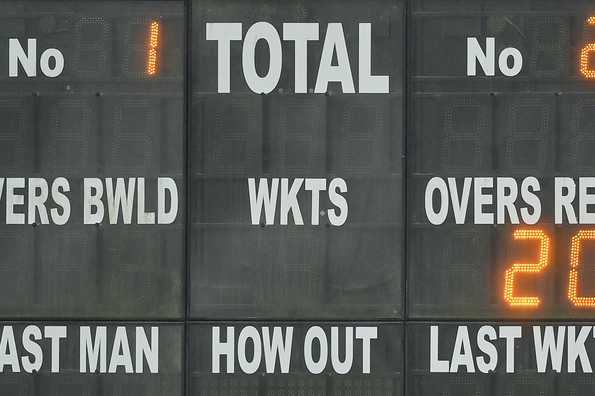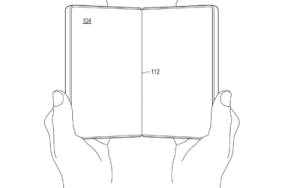The International Cricket Council (ICC) has announced adjustments to the Playing Conditions for Twenty20 Internationals, primarily affecting PowerPlay calculations. The key change involves rounding the length of the powerplay to the nearest ball, rather than the nearest over.

Under the current regulations, the initial six overs constitute the PowerPlay, typically representing 30% of a full 20-over innings. When innings are shortened, rounding to the nearest over can create a significant disparity.
When the batting team's overs are reduced, the number of Powerplay overs will be adjusted according to the following table. Note that this table applies to both the first and second innings of a match.
| Match reduced (overs) | Powerplay overs |
|---|---|
| 5 | 1.3 |
| 6 | 1.5 |
| 7 | 2.1 |
| 8 | 2.2 |
| 9 | 2.4 |
| 10 | 3 |
| 11 | 3.2 |
| 12 | 3.4 |
| 13 | 3.5 |
| 14 | 4.1 |
| 15 | 4.3 |
| 16 | 4.5 |
| 17 | 5.1 |
| 18 | 5.2 |
| 19 | 5.4 |
Previously, an 8-over innings featured two powerplay overs, while a 9-over innings had three. According to the updated table, the powerplay will now conclude after 2.2 and 2.4 overs, respectively, maintaining a proportion closer to 30%.
The ICC shared with its members, "This table has been successfully used in the T20 Blast in England for many years. The ICC Men's Cricket Committee has now accepted it as the preferred method moving forward. In the 8 over example, the umpire will signal after 2 balls of the 3rd over, allowing three additional fielders to move back from within the circle."
The ICC had previously mandated that concussion replacements in Men's T20I matches must be identified and named before the match commences. This measure aims to level the playing field by eliminating the home team's advantage of having a larger pool of available players. Teams are required to nominate the following potential concussion replacements to the match referee:
The ICC acknowledged that Associate Member teams participating in T20I matches might encounter difficulties in identifying a minimum of five specific concussion replacement players for each match. This is especially relevant for teams playing overseas, where the number of available players outside the playing XI is limited. The system adopted for Associate Member T20Is will address this concern.
Clarifying further, the ICC stated that teams may nominate a batter as the replacement wicketkeeper. However, in such cases, the referee (or their replacement) may stipulate that the nominated batter must keep wicket if utilized as the replacement wicketkeeper. Alternatively, the referee may permit another player from the starting XI to keep wicket instead of the nominated replacement, which aligns with current regulations. This decision rests entirely with the referee and is not guaranteed. The goal is to ensure a like-for-like replacement, preventing teams from gaining an unfair advantage by introducing another batter.
Teams are permitted to nominate the same player for multiple categories. For instance, if an all-rounder is nominated for more than one position and replaces a batter, the referee will likely prevent them from bowling, considering they are a batter replacement. There has never been a requirement for the concussion replacement to be restricted to the playing squad, and this remains the case. Teams can nominate any player who is eligible and qualified to play for them.
The overriding principle of a like-for-like concussion replacement remains in effect, and the referee responsible will handle replacements based on the specific circumstances at the time, always retaining the discretion to determine if a replacement player closely matches the injured player.
Examples include:
For the home team: Nominating five specific replacement players is easier for the home team, as they can select from outside the squad chosen for the match. This means that any eligible home player in the country can be nominated as a concussion replacement. If this proves challenging, the same player can be nominated more than once.
For the away team: Typically, a touring squad consists of 14 players. It is unlikely that any other players outside the touring squad are eligible and available for nomination in the country where the team is playing. In these situations, the team should nominate the three players not in the playing XI on the form, with two of them nominated twice. If a replacement is needed, it will be addressed at the time based on the principle of a like-for-like replacement from the nominations. If eligible players outside the squad are available in the country, they can be considered as nominations.
Under exceptional circumstances, the match referee (or their replacement) may consider a replacement player who is not among the nominated replacements submitted by the team for the match. This possibility is addressed in the nomination form.
The ICC has stated that if any substance, including saliva, is used to alter the condition of the ball, the ball must be replaced. However, a new clause prevents the automatic ball change in cases where a team deliberately applies saliva to force a replacement, preventing potential manipulation.
These changes apply exclusively to the Men's playing conditions. The Women's playing conditions will be updated in October, with the new regulations taking effect from July 10, 2025.
Newer articles
Older articles
 Vitamin D Could Slash Tooth Decay Risk by 50%, Study Suggests
Vitamin D Could Slash Tooth Decay Risk by 50%, Study Suggests
 Indian Cricket Star Mukesh Kumar and Wife Divya Singh Announce Birth of Son
Indian Cricket Star Mukesh Kumar and Wife Divya Singh Announce Birth of Son
 Shubman Gill's Captaincy Under Fire: Bold Calls Needed After England Test Defeat
Shubman Gill's Captaincy Under Fire: Bold Calls Needed After England Test Defeat
 Microsoft Aims for Foldable Redemption with Novel Hinge Design to Rival iPhone and Android
Microsoft Aims for Foldable Redemption with Novel Hinge Design to Rival iPhone and Android
 Popular Finance YouTuber's Account Hacked, Bitcoin Scam Promoted: Security Lessons Learned
Popular Finance YouTuber's Account Hacked, Bitcoin Scam Promoted: Security Lessons Learned
 Esha Gupta Breaks Silence on Hardik Pandya Romance Rumors: 'We Were Just Talking'
Esha Gupta Breaks Silence on Hardik Pandya Romance Rumors: 'We Were Just Talking'
 Hollywood's Love Affair with India: Iconic Film Locations Revealed
Hollywood's Love Affair with India: Iconic Film Locations Revealed
 Rishabh Pant Aims to Surpass Virat Kohli in Test Century Tally During England Series
Rishabh Pant Aims to Surpass Virat Kohli in Test Century Tally During England Series
 Prithvi Shaw Credits Sachin Tendulkar's Guidance for Career Revival After Setbacks
Prithvi Shaw Credits Sachin Tendulkar's Guidance for Career Revival After Setbacks
 Ashada Gupt Navratri 2025: Unveiling Dates, Timings, Significance & Secret Rituals
Ashada Gupt Navratri 2025: Unveiling Dates, Timings, Significance & Secret Rituals